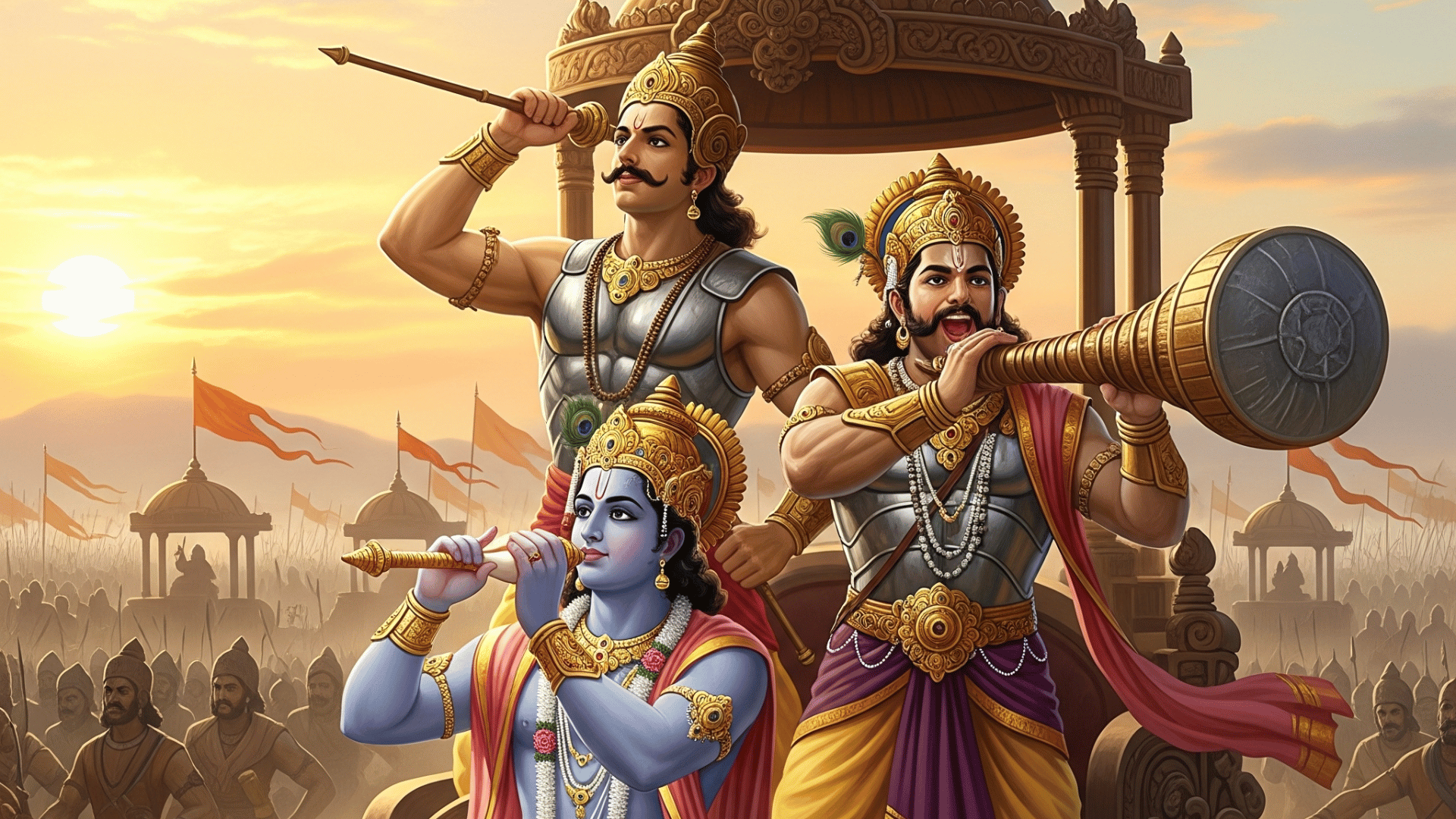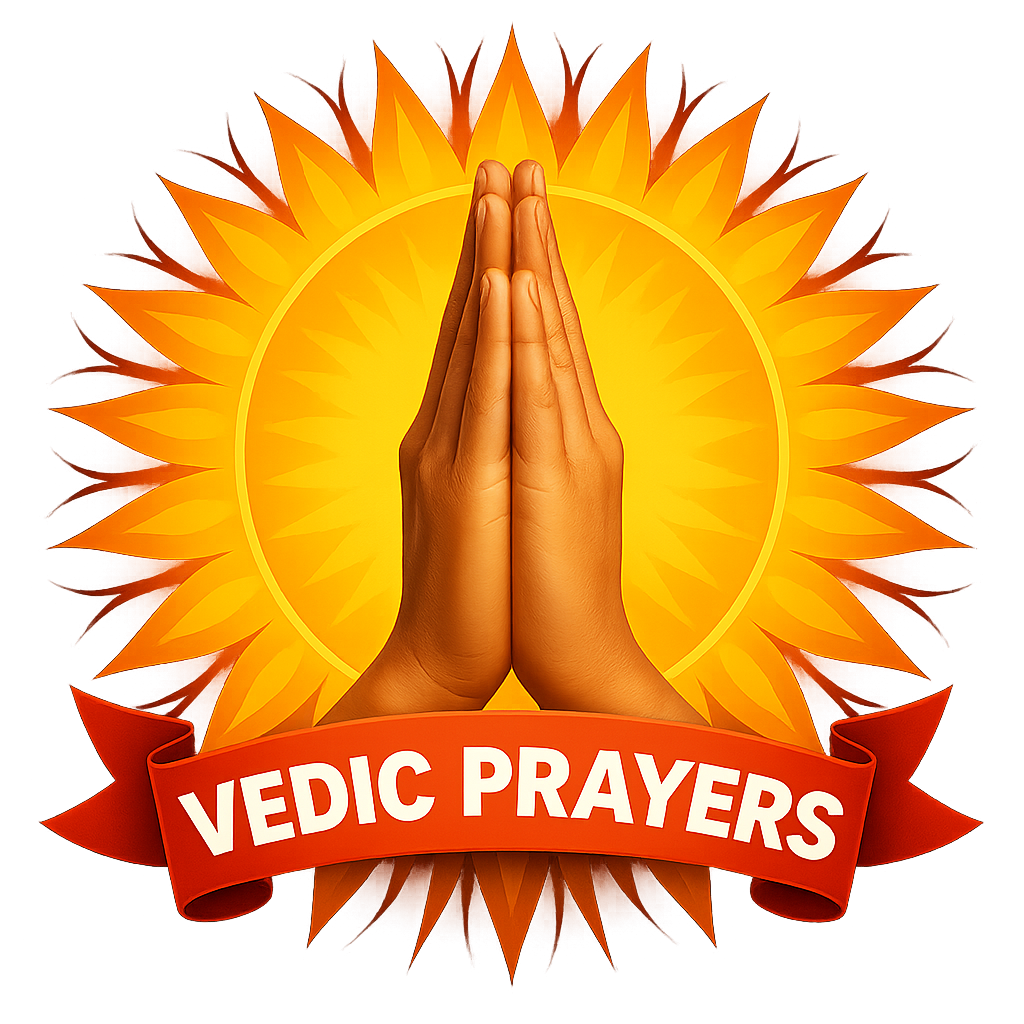
Chapter 1 – Arjuna’s Despondency
Verse 15
Paanchjanyam’, hrishikeshH, devduttam’, dhananjayH,
Paundrm’, dadhmau, mahashankham’, Bheemkarma, vrkodarH ||15||
Literal Meaning:
Hrishikesh (Shri Krishna) blew his conch named Panchajanya, Dhananjaya (Arjuna) blew his conch named Devadatta, and the mighty Bhimasena, known for his terrible deeds in battle, blew his great conch named Paundra.
Detailed Explanation:
This verse creates a solemn and powerful atmosphere signaling the declaration of war. Just as the Kaurava side sounded their conches, the Pandava side also blew their respective conches, indicating the beginning of battle.
Hrishikesh (Shri Krishna) – Here, Krishna is not just Arjuna’s charioteer but also the Lord of the senses (Hrishikesh). The sound of his conch Panchajanya in the battlefield symbolizes spiritual power and unwavering resolve.
Dhananjaya (Arjuna) – Arjuna blew his conch named Devadatta. This name suggests that Arjuna is a warrior full of devotion, righteousness, and surrender to God. The name “Dhananjaya” signifies his victorious nature — one who fights for dharma.
Bhīmakarma Vrikodara (Bhima) – Bhima is referred to as “Bhīmakarma”, meaning one who performs tremendous and fearsome deeds, like winning battles through sheer strength. “Vrikodara” means “wolf-bellied”, indicating immense strength and appetite. His conch Paundra represents his brute power and dominance.
This shloka vividly portrays the seriousness, grandeur, and emotional intensity right before the great war. The conch blasts by the Pandava warriors were not just signals — they were mental and spiritual declarations challenging the opposing side.
















